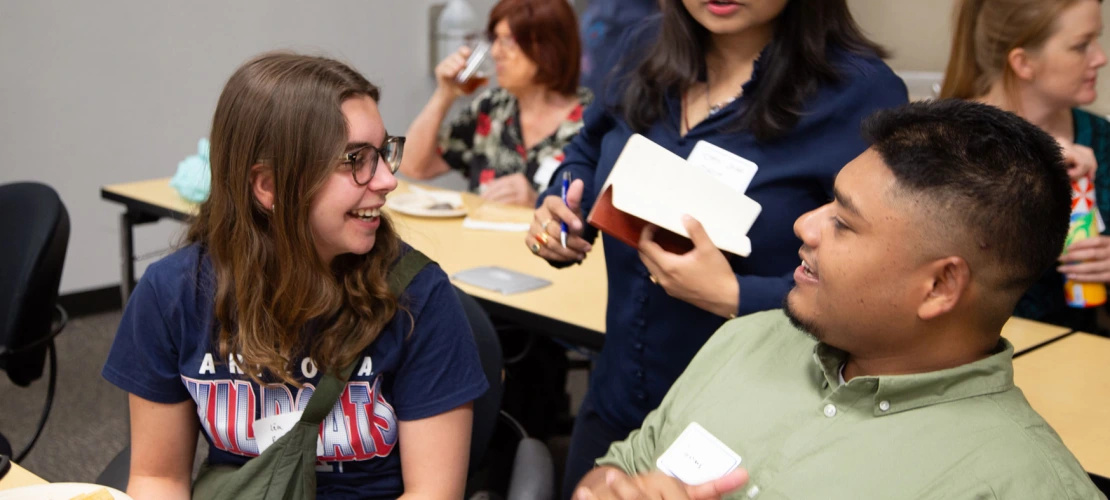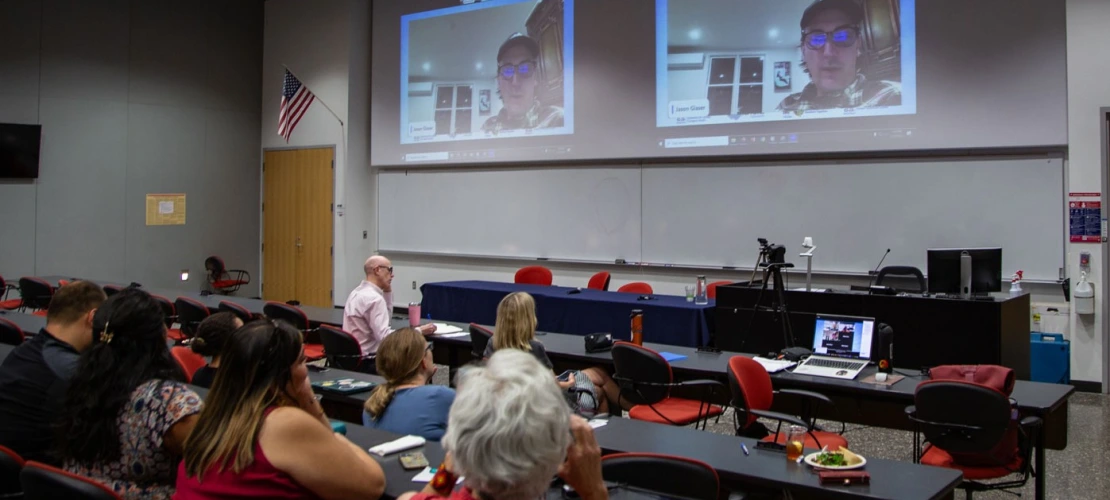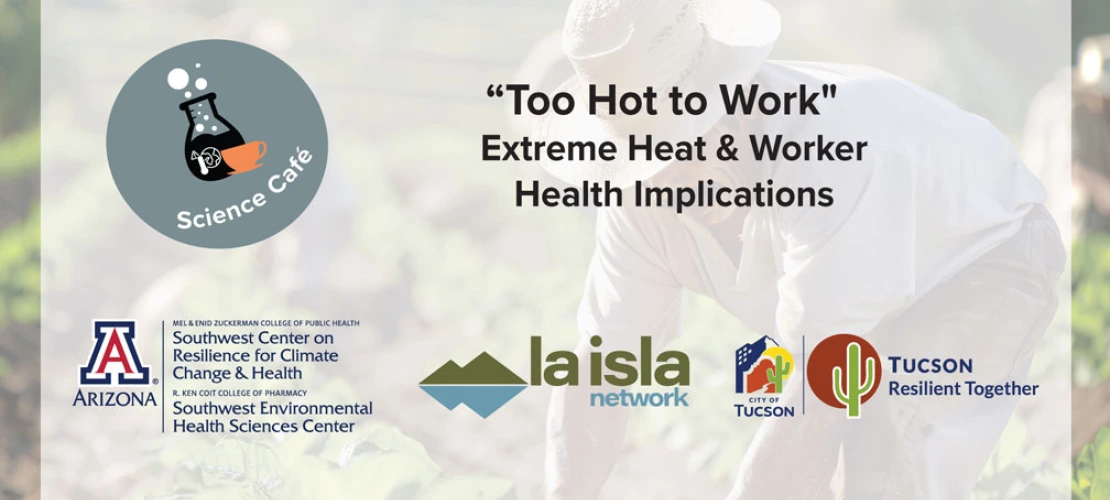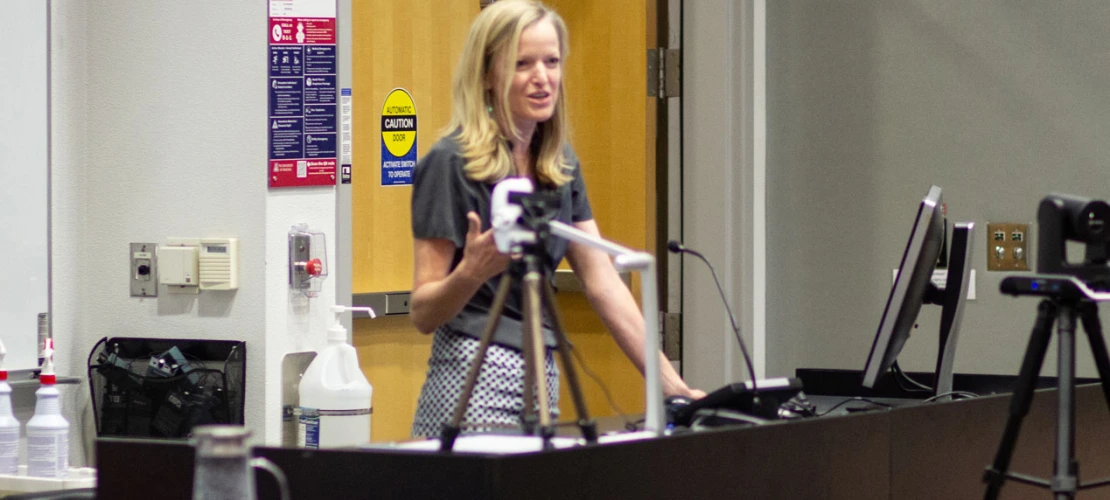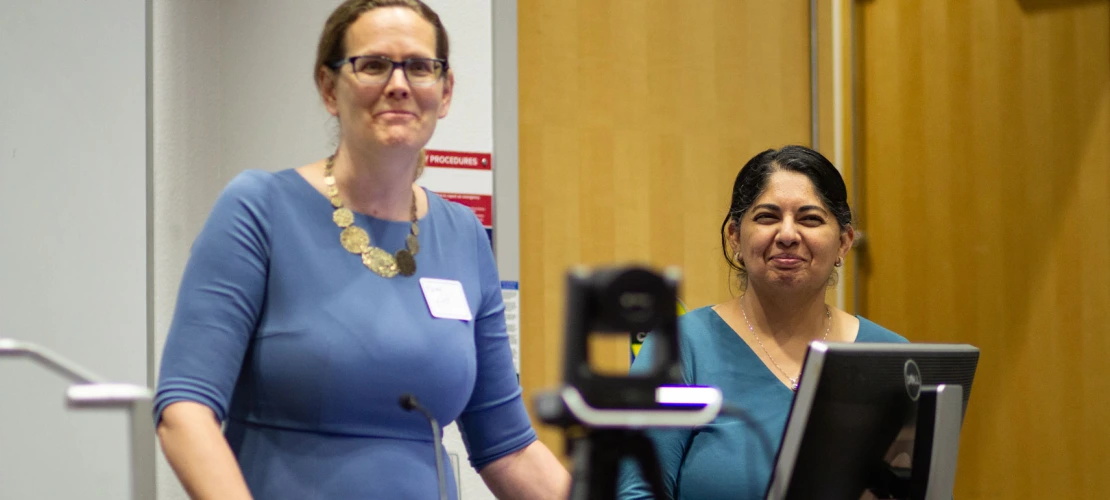Too Hot to Work: Urgent Call to Action at the Inaugural SCORCH Science Café
Extreme Heat & Worker Health Implications
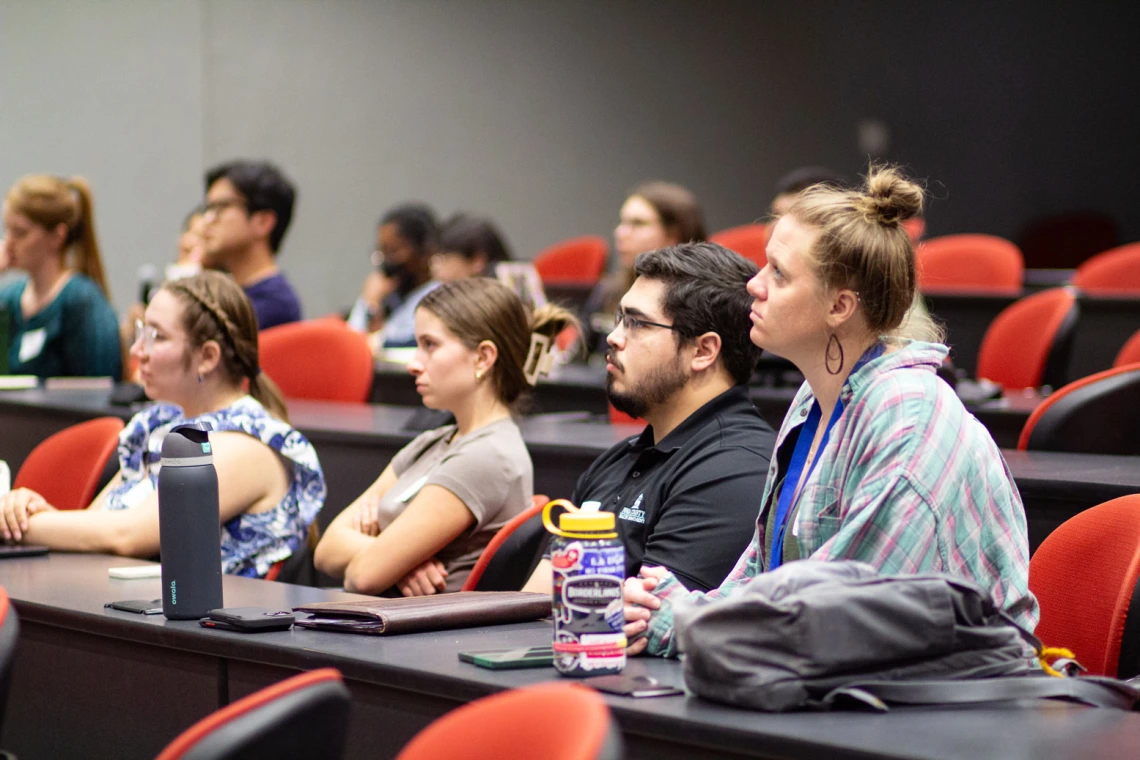
Attendees listening to the panel discussion.
On May 29, SCORCH co-sponsored a virtual Science Café, Extreme Heat & Worker Health Implications, featuring the powerful documentary film “Too Hot to Work.” Following the screening, a panel of experts and community representatives engaged in a lively conversation about the health risks of extreme heat on outdoor workers and the critical need for implementing and enforcing effective worker safety protections.
Event co-sponsoring partners included the City of Tucson (COT) Resilient Together Initiative, La Isla Network (LIN), and the Southwest Environmental Health Sciences Center (SWEHSC). The evening opened with an in-person resource fair to share educational and training materials for mitigating the risks of extreme heat among community members and outdoor workers. The event also provided space for organizations tabling at the resource fair including Common Defense, Office of Heat Response & Relief, Pima County Health Department (PCHD), and Sonora Environmental Research Institute (SERI).
Jason Glaser, LIN CEO and filmmaker-turned-epidemiologist, introduced the featured documentary film “Too Hot to Work,” by Mikaël Lefrançios and Camille Robert. Subtitled “Essential Workers: The New Frontlines of Global Warming,” the film grimly reveals how rising temperatures magnify social inequities by driving outdoor and non-air-conditioned indoor essential workers beyond the limits of human heat tolerance. Filmed across eight countries in Europe, the Middle East, North America, Central America, and South Asia, it presents firsthand accounts of sugarcane and smallholder-farm laborers who endure sunbaked days that precipitate heatstroke and chronic kidney disease, construction crews laboring under minimal shade, delivery and courier workers navigating marathon routes under blistering skies, garment-factory laborers confined to poorly ventilated workshops, and quarry workers and outdoor tour guides whose familiar worksites become hazardous as temperatures soar. Through the haunting declaration “there is an urgent need to act; we were late today” in response to the death of a construction crew member, the film underscores that even the slightest delay in protecting workers can prove deadly. Yet Glaser also documents a simple, evidence-based framework – Rest, Shade, Hydration, Sanitation (RSHS) – showing how initiatives in Central America and similar intervention pilot programs across Europe and Asia have dramatically reduced illness and saved lives. He argues that such low-cost, scalable solutions must become global occupational standards as our planet warms.
A diverse panel unpacked the film themes and charted paths forward. Emma Torres, Founder & Executive Director of Campesinos Sin Fronteras (CSF), emphasized grassroots health-worker networks as a frontline defense. Kate Ellingson of the Department of Epidemiology and Biostatistics at the University of Arizona Mel & Enid Zuckerman College of Public Health shared recent data on heat‐related hospitalizations in Arizona, highlighting thermal inequity in which outdoor laborers such as farmworkers experience disproportionate risk. Jason Glaser described LIN’s occupational health research, documenting how rising temperatures erode food productivity and exacerbate poverty cycles.
The event included in-person and virtual attendees representing concerned citizens, professionals supporting individuals affected by extreme heat, family members/friends of a worker affected by extreme heat, researchers, climate activists, students, workers affected by extreme heat, and employers of outdoor workers. Themes around key actions attendees cited as measures to protect themselves and their community during extreme heat were hydration, rest breaks, shade, checking in on neighbors, and heeding heat advisories. Looking ahead, participants expressed strong interest in exploring mandatory RSHS outdoor worker policies, bolstering community cooling-center planning, and identifying strategies for effective heat-health communication. This interactive exercise highlighted how individual choices can ripple outward into community-wide safeguards.
The Café concluded with a rallying cry to “act now”— that as extreme heat intensifies, communities cannot afford to delay.


